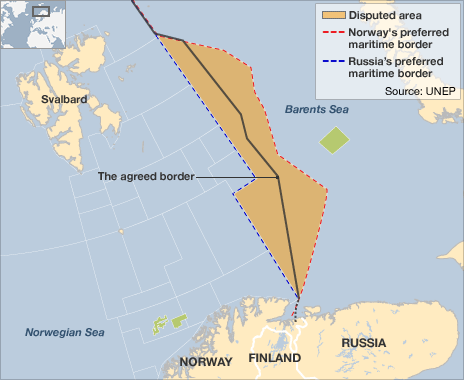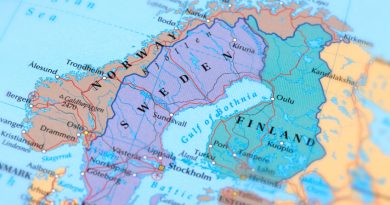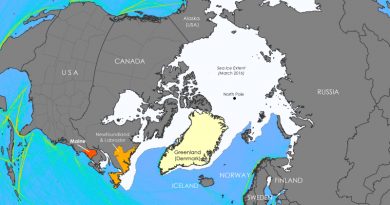Norway and Russia Sign Treaty to End Boundary Dispute in Barents Sea
The Foreign Ministers of Norway and Russia signed a treaty Wednesday in Murmansk, ending thirty years of negotiations over the maritime delimitation of the Barents Sea and Arctic Ocean. The Treaty, which although signed today was announced on April 27, is an excellent illustration of a peaceful resolution to a complex dispute, and as Russian President Dmitry Medvedev commented, could serve as a model for future deals on dividing Arctic riches.
Foremost among those are the Canadian disputes with America over the maritime delimitation in the Beaufort Sea, as it extends from the territorial border between Yukon and Alaska, and with Denmark over the ownership of Hans Island, which is located off the coasts of Ellesmere Island and Greenland. The Beaufort dispute involves a wedge of territory that is approximately 6275 square nautical miles in size, and expected to contain significant reserves of oil and gas as well as potential for commercial fishing. Canada maintains that the boundary should be an extension of the land border. The United States argues that the line should extend equidistantly from the Coast, thus veering further East than the land border, at Canada’s expense.
However a conference on the Beaufort dispute, held in Anchorage this past March, found that the dispute may not be zero-sum. That’s because as the boundary moves past the 200 mile exclusive economic zone, an American-style equidistant ruling would push the boundary westwards, benefitting Canada’s claim to an extended continental shelf. As Arctic legal expert Michael Byers argued, that makes it a “win-win situation…you couldn’t have designed a better solution.”
The dispute with the Danes over Hand Island is purely political; the tiny island has no known or anticipated resources and is not a traditional hunting ground. What’s more, the maritime boundary north and south of Hans Island was agreed upon in a treaty between Canada and Denmark in 1973, with the exception of the 0.52 mile length of the island. So the dispute is not about what’s surrounding the island, or even shipping access. It’s just about bragging rights to a piece of Arctic rock.
Encouragingly, Ottawa seems to have recognized that it’s better to resolve these disputes once and for all than to let them lie low until the inevitable flare-up occurs (as it did over Hans Island in 2005). In the latest Canadian Arctic Foreign Policy Statement, the Government announced that it will, “as a priority, seek to work with our neighbours to explore the possibility of resolving [these disputes] in accordance with international law.” Here’s hoping that the next Arctic photo op will involve Lawrence Cannon and Hillary Clinton signing a Treaty delimiting the Beaufort Sea boundary. (Which would give Cannon the opportunity to get that photo with Clinton that he missed last March.)
It’s getting harder and harder to see the Arctic as a region of impending conflict. Since tensions spiked in August 2007 (after the infamous Russian flag planting at the North Pole), the Arctic states have made every effort to prove to their neighbours, and themselves, that the Arctic is a region marked by cooperation and led by international law. The Norwegian-Russian Treaty is just the latest iteration of this trend. Despite global warming, it seems that cooler heads have prevailed, and we can expect such totems of cooperation in the Arctic to snowball.




